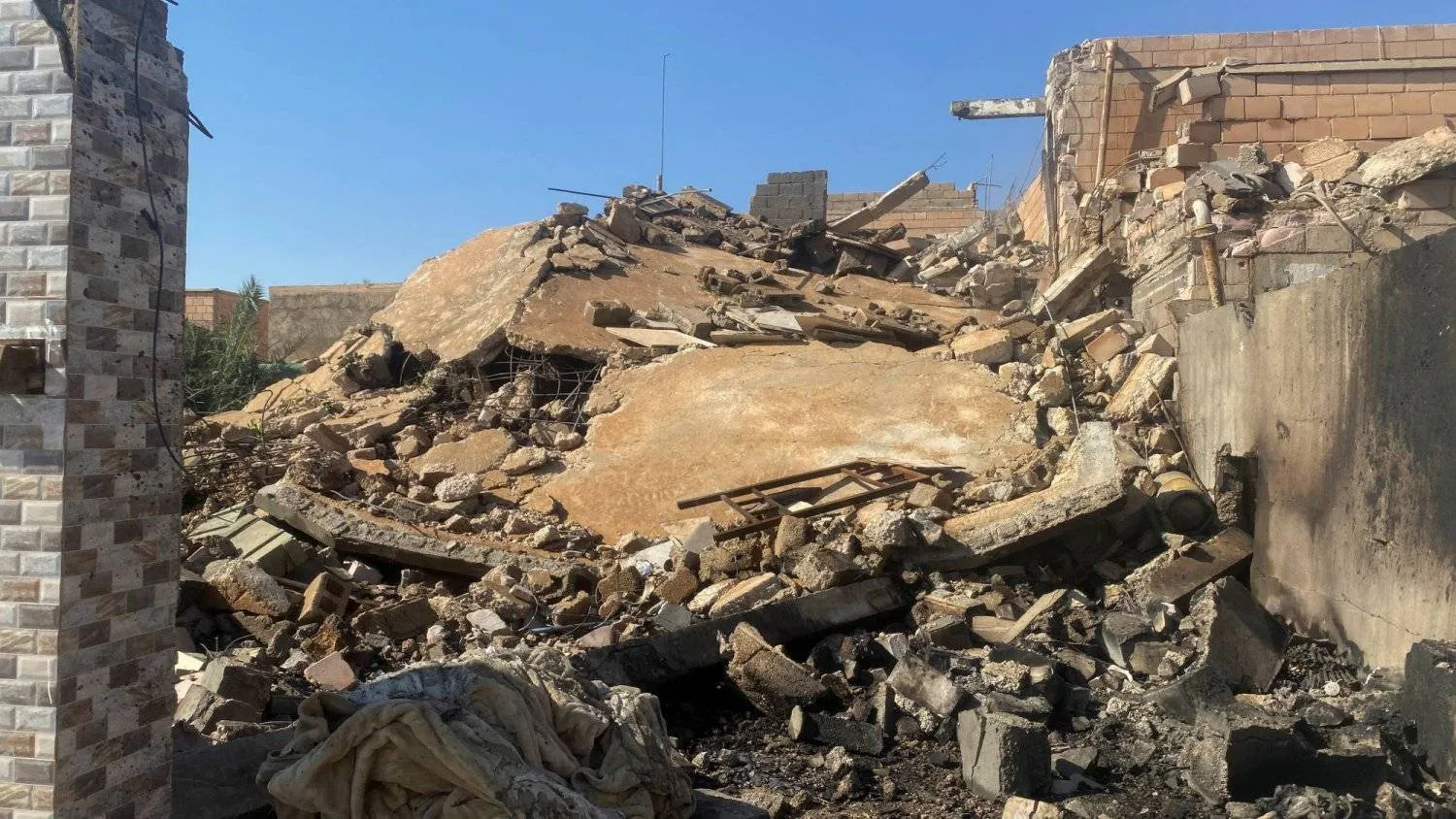The US strikes on Iranian-backed militias in Iraq and Syria are just the beginning of attacks that are expected to continue, said US officials.
The strikes aim to weaken the militias' ability, preventing them from carrying out attacks similar to the one that targeted the US base in Jordan, killing three soldiers and injuring more than 40 others.
The raids in retaliation for the killing of the soldiers sparked reactions inside and outside the US.
Observers speculated whether the administration of President Joe Biden has adopted a new approach to deal with Iran and its proxies, which would be a significant change to its previous strategy in dealing with Tehran, according to the officials.
In an operation that lasted 30 minutes, US warplanes struck more than 85 targets in seven sites linked to the al-Quds Force, the foreign arm of the Iranian Revolutionary Guard Corps (IRGC), and its affiliated militias in Syria and Iraq.
No plans to target Iran
A top US administration official confirmed Washington has no current plans to strike Iran.
However, National Security Council spokesman John Kirby did not confirm whether the Pentagon had presented Biden with options for an attack within Iran's borders.
During a joint media briefing with the director of Joint Chiefs of Staff, Lt-Gen Douglas Sims, Kirby said the targets were chosen to "degrade and disrupt the capabilities" of the IRGC and the groups they sponsor and support.
"We are not looking for a war with Iran."
Kirby said the US does not know at this time if or how many militants may have been killed or wounded, asserting that the Department of Defense is in the early stages of battle damage assessment, but they believe that the strikes were successful.
The spokesman confirmed that the targets were carefully selected to avoid civilian casualties and based on clear, irrefutable evidence that they were connected to attacks on US personnel in the region.
More than 125 "precision-guided munitions" were used to strike three facilities in Iraq and four in Syria, which included command and control centers, intelligence buildings and sites, missile and drone storage facilities, logistics, and ammunition supply chain sites.
Sims said that numerous aircraft, including B-1 bombers, were launched from the US and participated in the operations and that the targets were chosen in part to avoid harming civilians.
The military official explained that to ensure that they're hitting all the right targets and avoiding unnecessary casualties, it's good to have clear weather to see the targets.
It was designed "around the weather when we had our best opportunity as it related to the weather," he said.
Yemen next
Sims and Kirby declined to discuss future operations, stressing that Friday's strikes would not be the end of the US response to Iran, as more attacks are expected.
Politico newspaper quoted US officials as saying that the following targets will be in Yemen.
Biden ordered the strikes in response to the attack that targeted the Tower 22 base in Jordan last Sunday.
"Our response began today. It will continue at times and places of our choosing," Biden said in a statement on Friday evening.
"The United States does not seek conflict in the Middle East or anywhere else in the world. But let all those who might seek to do us harm know this: If you harm an American, we will respond."
Furthermore, US Defense Secretary Lloyd Austin confirmed in a separate statement that Friday's strikes were "the start of our response."
Austin indicated that the President has directed additional actions to hold the IRGC and affiliated militias accountable for their attacks on US and Coalition Forces.
"We will take all necessary actions to defend the United States, our forces, and our interests."
Although the US was keen not to expand the conflict in the region, according to official statements, the strikes were considered an increasingly direct involvement in the Middle East crisis.
On Friday evening, the US State Department announced that Secretary Antony Blinken will begin his fifth tour to the region on Sunday, where he will visit Israel, the West Bank, Qatar, Egypt, and Saudi Arabia.
Republican criticism
Republicans "welcomed" the strikes in Syria and Iraq, yet many of its Senate and Congress leaders considered them "insufficient."
Republican Rep. Roger Wicker and Republican Sen. Michael McCaul welcomed the strikes but said they were "long overdue."
Wicker said the military strikes were "welcomed, but come far too late for the three brave Americans who died and the nearly 50 wounded."
He added that it is time for the Commander-in-Chief to adopt a new approach that targets the "actual sponsors of terrorism in the region."
McCaul said the Biden administration must be decisive in its strikes and impose oil sanctions.
In addition, US Sen. Deb Fischer, a senior member of the Senate Armed Services Committee, believed that it was possible that these strikes, which were announced well in advance, did not achieve nearly enough to stop the Iran axis.
"Whatever next steps President Biden takes must be significantly stronger," Fischer announced.
Democrats also responded to the strikes, and Senator Jack Reed (D-RI), the Senate Armed Services Committee Chairman, issued a statement saying the response was "strong and proportional."
"The 85 targets struck tonight mark a greater number than the prior administration," said Reed.
"Iran's proxy forces in Syria and Iraq have been dealt a significant blow, and Iranian-linked militias around the Middle East should understand that they, too, will be held accountable."
Democratic Rep. Austin Scott applauded the bravery and skill of CENTCOM, who carried out multiple airstrikes, warning that those "who strike against the US will face consequences."









